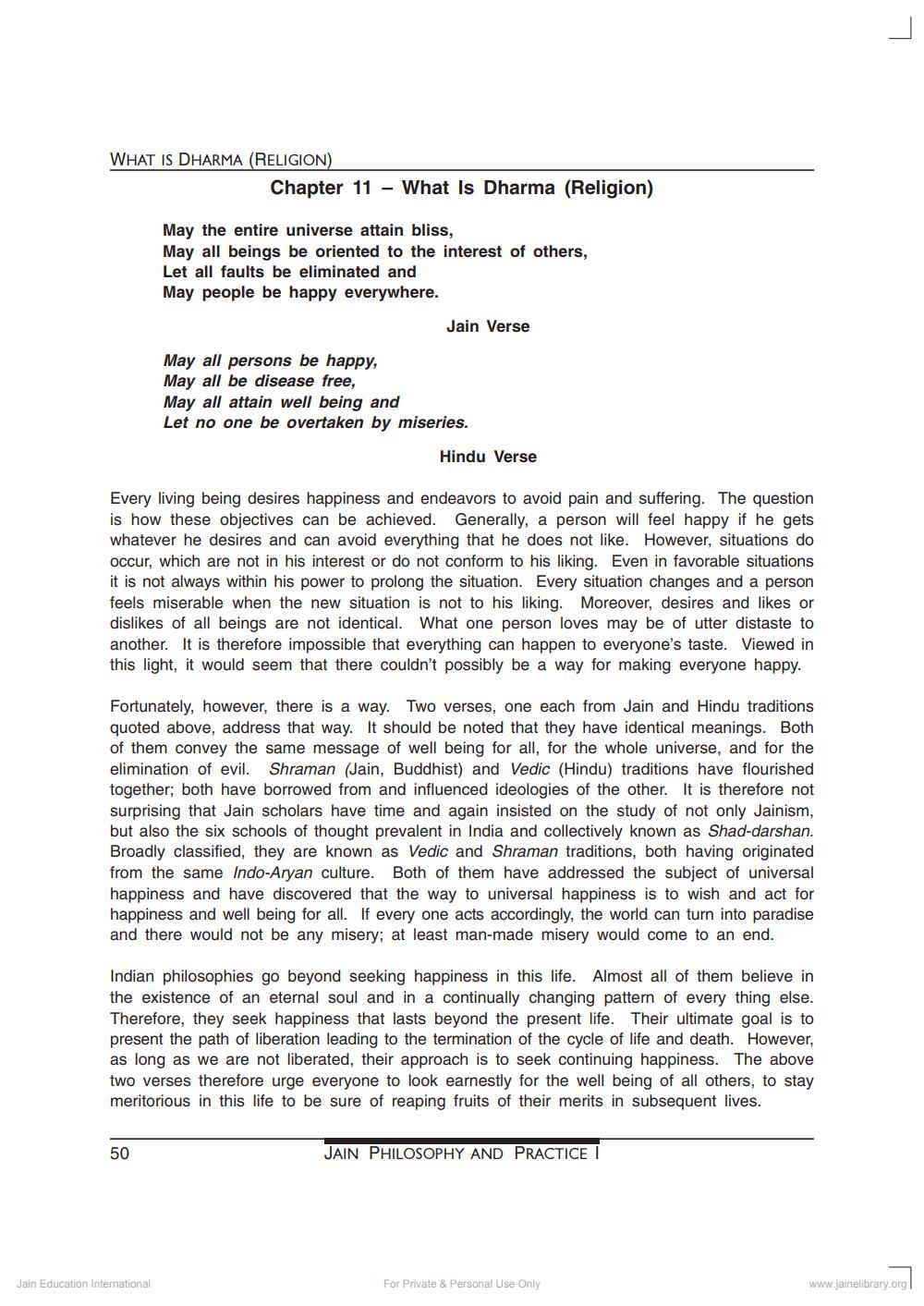________________
WHAT IS DHARMA (RELIGION)
Chapter 11 - What Is Dharma (Religion)
May the entire universe attain bliss, May all beings be oriented to the interest of others, Let all faults be eliminated and May people be happy everywhere.
Jain Verse
May all persons be happy, May all be disease free, May all attain well being and Let no one be overtaken by miseries.
Hindu Verse
is now these objectivesd can avoid everything form to his liki
Every living being desires happiness and endeavors to avoid pain and suffering. The question is how these objectives can be achieved. Generally, a person will feel happy if he gets whatever he desires and can avoid everything that he does not like. However, situations do occur, which are not in his interest or do not conform to his liking. Even in favorable situations it is not always within his power to prolong the situation. Every situation changes and a person feels miserable when the new situation is not to his liking. Moreover, desires and likes or dislikes of all beings are not identical. What one person loves may be of utter distaste to another. It is therefore impossible that everything can happen to everyone's taste. Viewed in this light, it would seem that there couldn't possibly be a way for making everyone happy.
Fortunately, however, there is a way. Two verses, one each from Jain and Hindu traditions quoted above, address that way. It should be noted that they have identical meanings. Both of them convey the same message of well being for all, for the whole universe, and for the elimination of evil. Shraman (Jain, Buddhist) and Vedic (Hindu) traditions have flourished together; both have borrowed from and influenced ideologies of the other. It is therefore not surprising that Jain scholars have time and again insisted on the study of not only Jainism, but also the six schools of thought prevalent in India and collectively known as Shad-darshan. Broadly classified, they are known as Vedic and Shraman traditions, both having originated from the same Indo-Aryan culture. Both of them have addressed the subject of universal happiness and have discovered that the way to universal happiness is to wish and act for happiness and well being for all. If every one acts accordingly, the world can turn into paradise and there would not be any misery; at least man-made misery would come to an end.
Indian philosophies go beyond seeking happiness in this life. Almost all of them believe in the existence of an eternal soul and in a continually changing pattern of every thing else. Therefore, they seek happiness that lasts beyond the present life. Their ultimate goal is to present the path of liberation leading to the termination of the cycle of life and death. However, as long as we are not liberated, their approach is to seek continuing happiness. The above two verses therefore urge everyone to look earnestly for the well being of all others, to stay meritorious in this life to be sure of reaping fruits of their merits in subsequent lives.
50
JAIN PHILOSOPHY AND PRACTICE I
Jain Education International
For Private & Personal Use Only
www.jainelibrary.org




